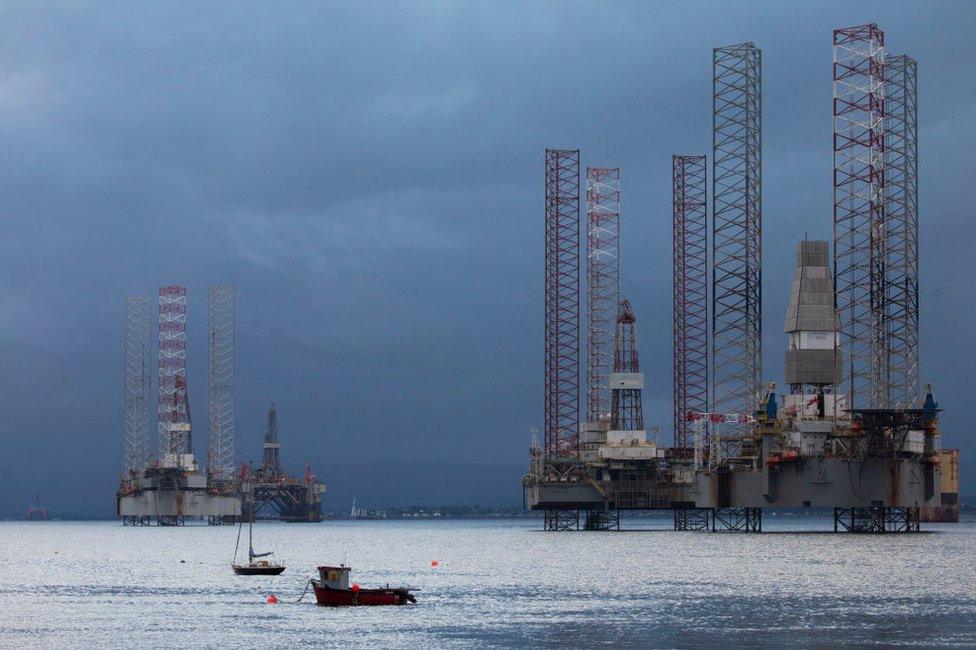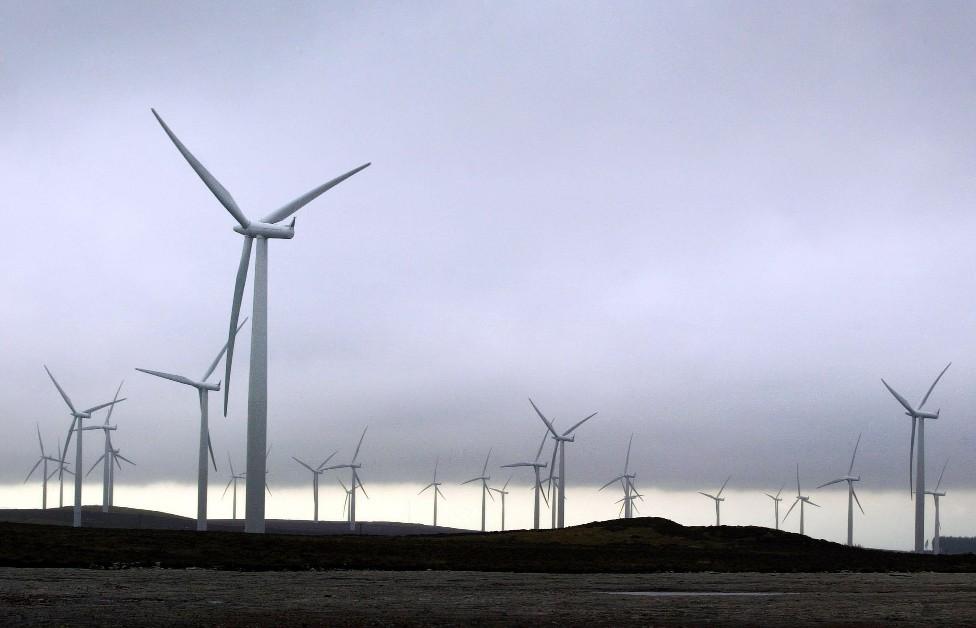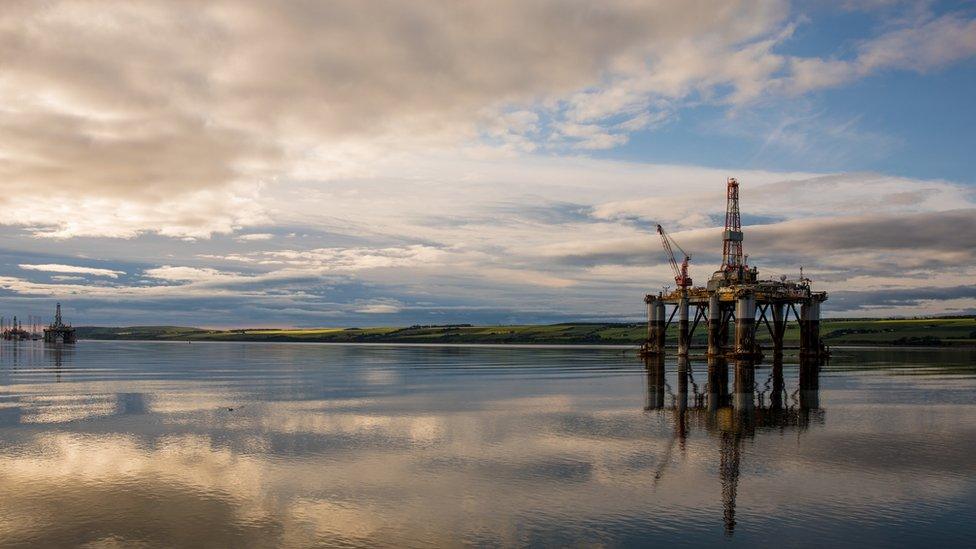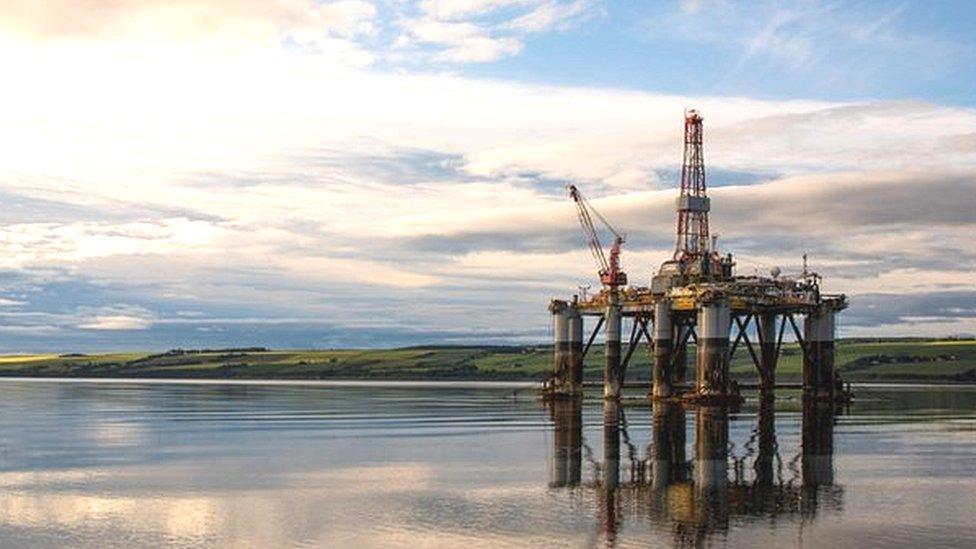North Sea oil and gas losing investments - report
- Published

North Sea oil and gas production is set to drop
The energy windfall tax, political uncertainty and increased costs are pushing away investment in North Sea oil and gas, a report has warned.
Industry body Offshore Energies UK estimates that 90% of offshore firms are cutting spending worth billions.
It says a continued lack of investment would see production fall by 80% by 2030, increasing reliance on imports.
Environmental group Uplift says oil and gas firms need to invest more in renewables.
The Energy Profits Levy - which the industry opposes - saw headline tax rates increase last year from 40% to 75%.
But companies have still been recording record profits with BP making $27.7bn (£23bn) in 2022.
The report says inflation, material costs and a lack of access to finance are also hampering investment decisions.
These combined factors mean the sector is likely to produce 500 million fewer barrels of oil, which is about the same as a year's production from the North Sea.
Ross Dornan, from OEUK, said: "By the mid-2030s, according to the Climate Change Committee, oil and gas will still provide half our energy needs.

Uplift is pushing for more investment in renewables
"We should be aiming to get as much as possible of that energy from our own resources - meaning the North Sea.
"That makes it essential for the UK to attract investment. The alternative is to become ever more reliant on other countries."
The report also points out that its member companies are collectively spending £30bn this decade on offshore wind projects which would almost double the UK's capacity.
It says that delays to planning consents and grid connections are slowing down the rate of deployment but also warns that financial uncertainties linked to the windfall tax are putting projects in jeopardy.
Some offshore wind farms are expected to take a decade to be built and readily producing electricity.
Uplift executive director Tessa Khan praised the decisions to invest in green energy but accused the government of lagging behind the curve.
She said: "Around the world, we are seeing countries accelerate plans to phase out oil and gas in response to both soaring prices and the climate crisis.
"The UK must make sure that our legacy oil and gas industry doesn't slow the pace of change here and hold us back."
The oil and gas industry in the UK has argued that North Sea output needs to fall in line with consumption to avoid increasing reliance on imports.
Fossil fuels produced overseas often come with a larger carbon footprint than "home grown" equivalents.
The report warns of a projected increase in the costs of the imported Liquified Natural Gas (LNG) with demand for it likely to grow across the world.
With the oil price set in US dollars, it also warns of increasing costs for UK operators because of the weak pound.
- Published25 March 2023

- Published22 October 2024
